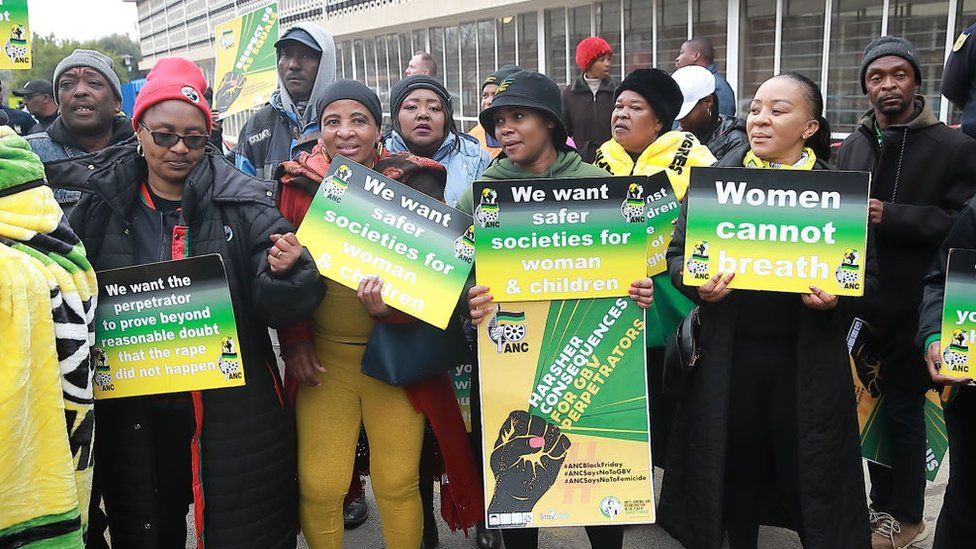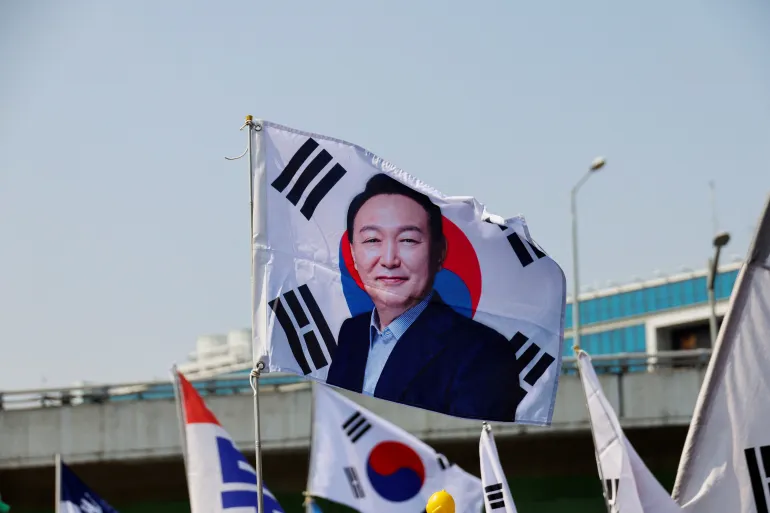South African authorities have charged seven men with 32 counts of rape after a mass assault at an abandoned mine near Johannesburg.
A group of eight women were attacked while filming a music video at the mine near the town of Krugersdorp last month.
Officials say they are illegal miners who dig for gold in disused shafts.
The men were among more than 60 suspects who appeared in court on immigration and firearms charges.
All are believed to be illegal migrants to South Africa. However, they are now expected to be tried separately because of the severity of their offences.
The suspects were identified by the women during a police line-up after the attacks.
But officers say the number of people charged could rise as DNA tests are concluded, as many of the men involved were wearing balaclavas when they attacked the crew which concealed their identities.
One of the victims told the BBC the women were seeking “justice for all the girls that went through this…for the countless number of women who’ve been raped in this country”.
Outside the court, protesters from civil society groups and several political parties gathered to demand that the men are denied bail.
The assaults sparked outrage in South Africa and has seen some urge authorities to do more to tackle a spate of violence against women.
The country has one of the world’s highest rate of rapes and sexual assaults, yet the conviction rate remains low.
The connection between the assaults and migration has seen angry mobs seeking to track down foreign miners and torch their homes in retaliation.
Earlier this week, three of the rape survivors told the BBC of their ordeal, which left them traumatised and in fear for their lives.
President Cyril Ramaphosa had appealed for help in bringing the attackers to justice during a national address earlier this month.
“These horrible acts of brutality are an affront to the right of women and girls to live and work in freedom and safety,” Mr Ramaphosa told South Africans.
“We call upon communities to work with the police to ensure that these criminals are apprehended and prosecuted.”
South Africa’s Minister for Women Maite Nkoana-Mashabane said the attacks had given rise to a “moment of crisis” and urged the country to “defend the democratic gains” that women have achieved.
Three years ago Mr Ramaphosa declared gender-based violence a national crisis, and in light of the recent gang rape, activists want a state of emergency declared so that rape and gender-based crimes are prioritised for swift prosecution.
A call for rapists to be chemically castrated was made at the governing African National Congress’s policy conference in response to the latest attack.







